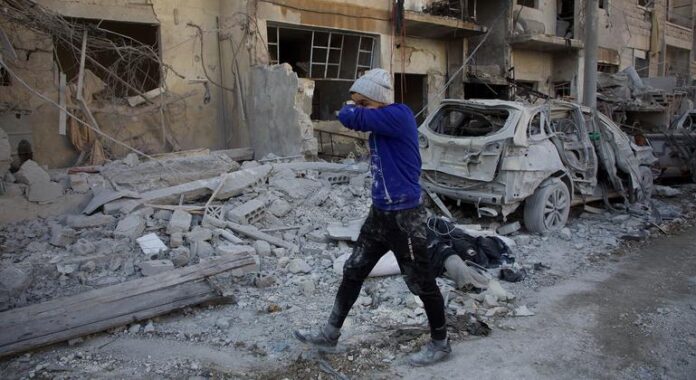“At least six civilians were killed, including two children, and more than 30 people injured” due to missile and drone attacks, the United Nations Human Rights Monitoring Mission in Ukraine (HRMM) said in a post on social media.
Observers said they visited a kindergarten that was badly damaged in drone strikes in the eastern city of Kharkiv – near the Russian border – and noted that all 50 children had been safely evacuated.
“Serious danger”
“This incident demonstrates ongoing attacks using long-range weapons that target residential areas, including educational institutions, putting the civilian population in grave danger,” HRMM posted on X.
Ukraine’s Energy Ministry said the attacks damaged infrastructure across the country, causing emergency power outages in many regions. Electricity and water supplies were disrupted, while national rail services faced delays due to damaged lines.
As the UN and its partners continue to provide aid to war-weary communities on the ground, OCHA reiterated a crucial message: civilians should never be targets.
Frontline help
U.N. deputy spokesperson Farhan Haq told correspondents in New York on Wednesday that an inter-agency humanitarian convoy had managed to reach Urozhaine, a frontline community regularly hit by bombings and drone attacks.
“We, with our partners, delivered 11 tonnes of aid to some 1,000 residents, including food, hygiene and dignity kits, warm blankets, solar lamps and medical supplies,” he stressed.
“This was the 24th humanitarian convoy to hard-hit areas of the Kherson region this year.”
Although operations continue, UN humanitarians face growing challenges following the incident on Tuesday last week in which a convoy of four UN humanitarian trucks was attacked by Russian forces, a stark reminder of the risks faced by those providing vital aid on the front lines.
“Of course it is shocking,” Ukraine’s top aid coordinator, Andrea de Domenico, told UN News on Tuesday, noting that it was the first direct attack on a humanitarian convoy.
“After this happened, I told the team that this was one of the risks we had to face. Our UN security colleagues worked excellently with us and were very effective in protecting the lives of those involved in this mission.
“It takes a lot of determination, courage and motivation to keep doing it, but that’s what being involved in humanitarian operations in a war zone is all about. »









